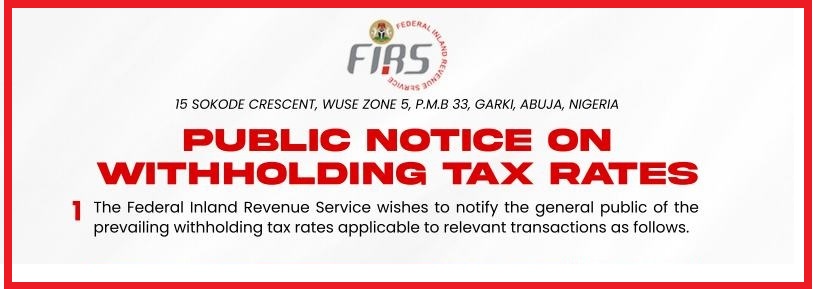In the heart of Nigeria, within the bustling cities of West, South, North and East a vivid tableau unfolds under the unrelenting gaze of the midday sun. Here, two distinct worlds coexist, casting a stark juxtaposition that mirrors the nation’s broader socio-economic landscape.
Towering chrome structures, monuments to petrodollars and unbridled ambition, pierce the sky, their long shadows painting a stark contrast to the chaotic symphony of life in the streets below.
These towering glass cathedrals house the privileged “haves,” their days bathed in opulence, a whirlwind of champagne brunches and discreet chauffeur-driven excursions. Yet, just a stone’s throw away, concealed within the labyrinthine alleys of Makoko, a floating slum buoyed by both refuse and resilience, the marginalized “have-nots” carve out a meager existence marked by desperation and desolation.
Beneath the shadow of Port Harcourt’s oil wealth lurks Mile 3 Diobu, a slum sculpted from despair and resilience. Rusty corrugated iron shacks huddle together, their tin roofs groaning under the relentless sun. Raw sewage snakes through narrow alleys, breeding a symphony of buzzing flies and the stench of decay. Children, barefoot and hollow-eyed, chase mangy dogs through makeshift football pitches carved from garbage dumps. Women, etched with fatigue, hawk meager wares under makeshift sunshades, their voices a constant hum of survival. Here, hope is a flickering candle struggling against the suffocating darkness of poverty.
In the heart of Kano’s ancient walls, tucked behind the grand Durbar Palace, lies Sheka. A labyrinthine maze of mud-brick dwellings, its lanes choked with dust and the cacophony of hawkers and donkey carts. Sunlight, filtered through tattered cloths strung across alleyways, casts an amber glow on faces hardened by hardship. Young boys, apprenticed to metalworkers, their hands blackened by soot, dream of escaping the furnace they call home. Women, veiled and resolute, gather around communal water taps, their whispers blending with the clanking of pots and the rasping coughs of children coughing from the omnipresent dust. Sheka is a tapestry woven with desperation, yet its threads are held together by an unyielding spirit of community.
On the fringes of Onitsha, the commercial pulse of Anambra, sprawls Ogidi Transit Camp. Not a slum in the traditional sense, it’s a makeshift haven for internally displaced persons, their lives uprooted by conflict or natural disasters. Tattered tents huddle like dispossessed dreams, offering scant protection from the elements. Faces, etched with loss and uncertainty, stare into the unknown. Mothers cradle malnourished children, their stories whispered in the rustling of plastic sheeting. Hope here is a fragile seed, planted in the cracks of displacement, watered by the tears of memory and the desperate yearning for a future home.
These are just glimpses into the diverse worlds of Nigeria’s “have-nots.” Each slum bears its own scars, its own stories of struggle and resilience. But they are united by a common thread: the brutal impact of social and economic inequality on the lives of millions.
This visual dissonance encapsulates the harsh reality of Nigeria’s social inequality—a tapestry intricately woven with threads of corruption, bad governance, and an ever-widening chasm of wealth disparity.
The starkness of this divide is amplified when one delves into the statistics. Nigeria, often hailed as Africa’s economic powerhouse, bears the ignominious title of hosting the continent’s largest population living in extreme poverty—86.9 million souls grappling with destitution. The Gini coefficient, a harsh arbiter of inequality, further exposes the nation’s social fault lines, with a staggering 43.1% rating. This translates into a reality where the richest 10% lay claim to 40% of the nation’s wealth, leaving the bottom 50% to navigate the precarious terrain of existence with a mere 14%.
This abyss of inequality is no natural occurrence; it is a meticulously crafted construct, shaped by the insidious hand of corruption—an endemic issue in Nigeria. This hydra-headed monster clandestinely diverts billions from the national coffers annually, inflating contracts, conjuring phantom projects, and transforming public funds into private playgrounds for the privileged few. The consequence is a threadbare social safety net, rendering critical sectors such as healthcare and education perennially underfunded.
In the year 2020, a paltry 4.5% of Nigeria’s GDP found its way to healthcare, leaving millions at the mercy of dilapidated hospitals and ill-equipped medical practitioners. The education sector fares no better, with over 10 million children consigned to the shadows of illiteracy, robbed of a future brimming with opportunities.
These systemic failings etch themselves into the very faces of the underclass. Hunger, a constant companion, gnaws at their bellies within the confines of ramshackle shelters. In 2022, UNICEF’s poignant report revealed that 7.5 million Nigerian children under five endure the scourge of wasting and stunting, their growth stunted by the shackles of malnutrition. Disease, perpetually lurking at the fringes of poverty, claims countless lives—where malaria alone extinguishes the light of one Nigerian child every passing minute.
Desperation, the offspring of neglect, begets despair, and despair, in turn, births a surge in crime. The streets of Lagos, once alive with the vibrancy of commerce, now resonate with the ominous clang of machetes and the desperate pleas of victims. Armed robbery, kidnapping, Yahoo boys and petty theft have become unwelcome norms for the underclass—a macabre lottery where survival stands as the sole prize. In 2021, the National Bureau of Statistics documented over 80,000 Nigerians as victims of violent crimes—a chilling testament to the unraveling social fabric.
To comprehend this societal decay fully, one must peer through the lens of conflict theory. This paradigm posits that society inherently cleaves into groups with unequal access to power and resources. In Nigeria, the affluent elite personify the dominant class, exercising control over political and economic levers, while the underclass languishes in the margins, marginalized and exploited. This power asymmetry kindles resentment, fueling cycles of crime and violence that plague the nation.
Compelling case studies illuminate the human toll of inequality. Consider 10-year-old Fatima, compelled to beg on the streets to nourish her siblings, while her fisherman father contends with a rigged system that denies him fair compensation for his catch. Or cast your gaze to Odi, a village razed in 1999 by soldiers safeguarding the oil interests of the powerful elite, leaving countless families destitute and relegated to the shadows of forgotten lives.
The repercussions of this chronic inequality resonate far beyond Nigeria’s borders. It stifles economic growth, repels foreign investment, and fans the flames of political instability. It sows seeds of social unrest, erodes trust in institutions, and nurtures extremism. This is not solely a Nigerian tragedy; it is a global concern with repercussions stretching wide and far.
Yet, amidst the shadows of despair, glimmers of hope persist. Grassroots movements are burgeoning, demanding transparency and accountability from leaders. Civil society organizations are valiantly combating corruption and championing social justice. Young Nigerians are leveraging technology to amplify their voices, challenging the entrenched status quo.
The struggle for a more equitable Nigeria is not a lost cause, but it necessitates a comprehensive approach. Political reforms are imperative, dismantling the opaque structures that facilitate corruption and fortify the elite. Investment in education and healthcare is paramount, providing the underclass with the tools to ascend from poverty and script their destinies. Fostering inclusive economic policies ensures that the fruits of progress are shared equitably, not confined to the privileged few.
In conclusion, the battle against inequality is a fight for Nigeria’s very soul—a quest to reclaim the promise of a nation where merit, not circumstance, shapes destinies. It is a persistent effort to bridge not only the wealth gap but the chasm that separates dreams, opportunities, and the fundamental right to a dignified life.
This fight demands collective action, a harmonious chorus of voices united in the call for change. It necessitates the bravery of whistleblowers, the persistence of activists, and the unwavering commitment of a citizenry determined to dismantle the walls of privilege and inscribe a new narrative for their nation’s future.
In every corner of this prolonged journey, setbacks, disappointments, and moments of doubt will emerge. Yet, every ink drop protesting inequality, every voice raised in demand, every act of defiance—no matter how small—chips away at the fortress of inequity.
Remember, the power to instigate change does not solely reside in the hands of the mighty; it exists within each individual. Let us wield that power with courage, conviction, and an unwavering belief in hope. Let us rise collectively, unified in our shared humanity, to construct a Nigeria where the shadows of inequality ultimately give way to the dawn of a more just and equitable future.
Aminu Adamu
(Sociologist, Freelance Journalist)







